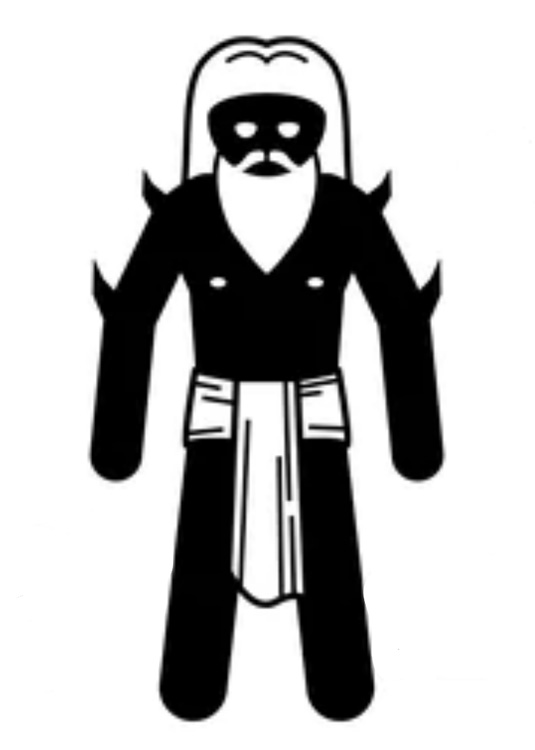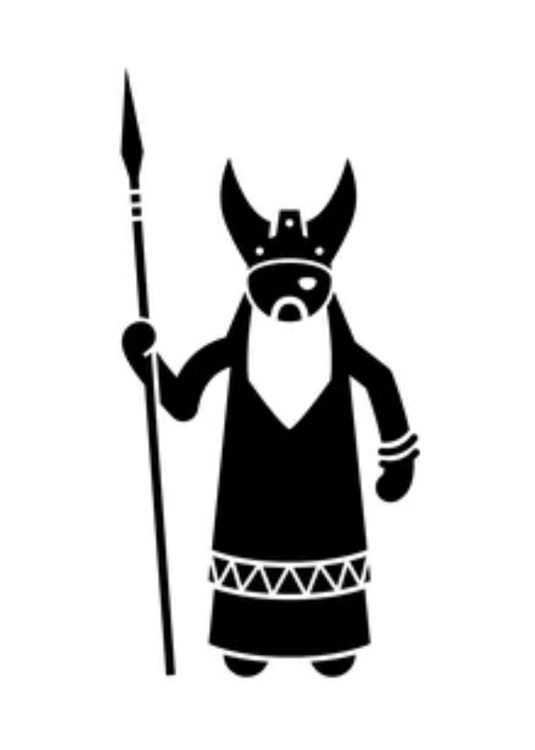Artifact overview
GKS 2365 4º / Codex Regius is an artifact (Parchment Manuscript) related to the mythological story named 'Ask and EmblaVoluspa.' The artifact's condition is Just OK and it is currently located at The Árni Magnússon Institute in Reykjavik, Iceland, catalogued as record number GKS 2365 4º. The language of the text contained is Icelandic (Latin Script writing system). Its estimated date is 1240—1300 CE, which is a range based on available data and scholarship. The mythology associated with this artifact includes the Norse Paganism belief system and related deities: Odin and Ymir.
About this artifact
Basic details
| Type | Manuscript Parchment material |
| Condition | Just OK |
| Date created | 1240—1300 CE |
| Language | Icelandic |
| Writing system | Latin Script (script) |
| Location | The Arni Magnusson Institute The Árni Magnússon Institute · Reykjavik, Iceland |
| No. | GKS 2365 4º |
| Digital access | Not digitized or unable to secure access |
Provenience
| Discovery | Unknown |
Museum record data
Item specifications
| Museum No. | GKS 2365 4º |
Mythological contents
Associated myths and deities
| Myths | Ask and Embla, Voluspa |
| Deities | Odin, Ymir |
Background
The Codex Regius, also known as the "Royal Book", "King's Book", or GKS 2365 4º is a manuscript containing Norse mythology, including the Völuspá creation myth. The manuscript is said to come from Iceland and was written around 1270 CE. The manuscript suffered extensive damage over the years, but has been transcribed by various authors. It has been digitized by several institutions, including research institutions within Iceland and the United Kingdom.[1]
Extended artifact data for GKS 2365 4º
See detailed information about this artifact from the entity that has access to it.
Location description
 The Arni Magnusson Institute Reykjavik, Icelandexpand_less
The Arni Magnusson Institute Reykjavik, Icelandexpand_lessFull address: The Arni Magnusson Institute, Laugavegur 13, 101, Reykjavik, , Iceland
The Árni Magnússon Institute for Icelandic Studies is an independently funded academic research institute at the University of Iceland, operating under the auspices of the Ministry of Education, Science and Culture. Its role is to conduct research in the field of Icelandic studies and related scholarly disciplines, in particular Icelandic language and literature; to disseminate knowledge in these fields; and to preserve and augment the collections entrusted to its care.
Learn more
Record numbers
| No. | GKS 2365 4º |
| Digitized record | Record No. GKS 2365 4to |
| Artifact access | Unknown |
Full artifact data
Record notes
About these data
| Retrieval date | Jun. 20, 2020 |
| Copyright | The Arni Magnusson Institute |
Render
See a rendering of the artifact in images, text, and other form factors. Where available, a translation is included.
Digital scan
OMNIKA Reader
Good news. This original artifact is digitized and available in the OMNIKA Library.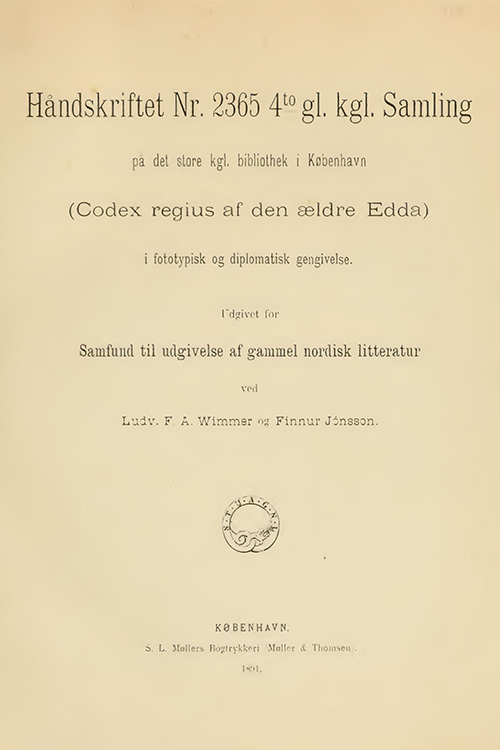
Full Translation, Collation (full)
Icelandic ⟶ English a
1. Hearing I ask | from the holy races,
From Heimdall's sons, | both high and low;
Thou wilt, Valfather, | that well I relate
Old tales I remember | of men long ago.
2. I remember yet | the giants of yore,
Who gave me bread | in the days gone by;
Nine worlds I knew, | the nine in the tree
With mighty roots | beneath the mold.
3. Of old was the age | when Ymir lived;
Sea nor cool waves | nor sand there were;
Earth had not been, | nor heaven above,
But a yawning gap, | and grass nowhere.
4. Then Bur's sons lifted | the level land,
Mithgarth the mighty | there they made;
The sun from the south | warmed the stones of earth,
And green was the ground | with growing leeks.
5. The sun, the sister | of the moon, from the south
Her right hand cast | over heaven's rim;
No knowledge she had | where her home should be,
The moon knew not | what might was his,
The stars knew not | where their stations were.
6. Then sought the gods | their assembly-seats,
The holy ones, | and council held;
Names then gave they | to noon and twilight,
Morning they named, | and the waning moon,
Night and evening, | the years to number.
7. At Ithavoll met | the mighty gods,
Shrines and temples | they timbered high;
Forges they set, and | they smithied ore,
Tongs they wrought, | and tools they fashioned.
8. In their dwellings at peace | they played at tables,
Of gold no lack | did the gods then know,--
Till thither came | up giant-maids three,
Huge of might, | out of Jotunheim.
9. Then sought the gods | their assembly-seats,
The holy ones, | and council held,
To find who should raise | the race of dwarfs
Out of Brimir's blood | and the legs of Blain.
10. There was Motsognir | the mightiest made
Of all the dwarfs, | and Durin next;
Many a likeness | of men they made,
The dwarfs in the earth, | as Durin said.
11. Nyi and Nithi, | Northri and Suthri,
Austri and Vestri, | Althjof, Dvalin,
Nar and Nain, | Niping, Dain,
Bifur, Bofur, | Bombur, Nori,
An and Onar, | Ai, Mjothvitnir.
12. Vigg and Gandalf) | Vindalf, Thrain,
Thekk and Thorin, | Thror, Vit and Lit,
Nyr and Nyrath,-- | now have I told--
Regin and Rathsvith-- | the list aright.
13. Fili, Kili, | Fundin, Nali,
Heptifili, | Hannar, Sviur,
Frar, Hornbori, | Fræg and Loni,
Aurvang, Jari, | Eikinskjaldi.
14. The race of the dwarfs | in Dvalin's throng
Down to Lofar | the list must I tell;
The rocks they left, | and through wet lands
They sought a home | in the fields of sand.
15. There were Draupnir | and Dolgthrasir,
Hor, Haugspori, | Hlevang, Gloin,
Dori, Ori, | Duf, Andvari,
Skirfir, Virfir, | Skafith, Ai.
16. Alf and Yngvi, | Eikinskjaldi,
Fjalar and Frosti, | Fith and Ginnar;
So for all time | shall the tale be known,
The list of all | the forbears of Lofar.
17. Then from the throng | did three come forth,
From the home of the gods, | the mighty and gracious;
Two without fate | on the land they found,
Ask and Embla, | empty of might.
18. Soul they had not, | sense they had not,
Heat nor motion, | nor goodly hue;
Soul gave Othin, | sense gave Hönir,
Heat gave Lothur | and goodly hue.
19. An ash I know, | Yggdrasil its name,
With water white | is the great tree wet;
Thence come the dews | that fall in the dales,
Green by Urth's well | does it ever grow.
20. Thence come the maidens | mighty in wisdom,
Three from the dwelling | down 'neath the tree;
Urth is one named, | Verthandi the next,--
On the wood they scored,-- | and Skuld the third.
Laws they made there, and life allotted
To the sons of men, and set their fates.
21. The war I remember, | the first in the world,
When the gods with spears | had smitten Gollveig,
And in the hall | of Hor had burned her,
Three times burned, | and three times born,
Oft and again, | yet ever she lives.
22. Heith they named her | who sought their home,
The wide-seeing witch, | in magic wise;
Minds she bewitched | that were moved by her magic,
To evil women | a joy she was.
23. On the host his spear | did Othin hurl,
Then in the world | did war first come;
The wall that girdled | the gods was broken,
And the field by the warlike | Wanes was trodden.
24. Then sought the gods | their assembly-seats,
The holy ones, | and council held,
Whether the gods | should tribute give,
Or to all alike | should worship belong.
25. Then sought the gods | their assembly-seats,
The holy ones, | and council held,
To find who with venom | the air had filled,
Or had given Oth's bride | to the giants' brood.
26. In swelling rage | then rose up Thor,--
Seldom he sits | when he such things hears,--
And the oaths were broken, | the words and bonds,
The mighty pledges | between them made.
27. I know of the horn | of Heimdall, hidden
Under the high-reaching | holy tree;
On it there pours | from Valfather's pledge
A mighty stream: | would you know yet more?
28. Alone I sat | when the Old One sought me,
The terror of gods, | and gazed in mine eyes:
"What hast thou to ask? | why comest thou hither?
Othin, I know | where thine eye is hidden."
29. I know where Othin's | eye is hidden,
Deep in the wide-famed | well of Mimir;
Mead from the pledge | of Othin each mom
Does Mimir drink: | would you know yet more?
30. Necklaces had I | and rings from Heerfather,
Wise was my speech | and my magic wisdom;
. . . . . . . . . .
Widely I saw | over all the worlds.
31. On all sides saw I | Valkyries assemble,
Ready to ride | to the ranks of the gods;
Skuld bore the shield, | and Skogul rode next,
Guth, Hild, Gondul, | and Geirskogul.
Of Herjan's maidens | the list have ye heard,
Valkyries ready | to ride o'er the earth.
32. I saw for Baldr, | the bleeding god,
The son of Othin, | his destiny set:
Famous and fair | in the lofty fields,
Full grown in strength | the mistletoe stood.
33. From the branch which seemed | so slender and fair
Came a harmful shaft | that Hoth should hurl;
But the brother of Baldr | was born ere long,
And one night old | fought Othin's son.
34. His hands he washed not, | his hair he combed not,
Till he bore to the bale-blaze | Baldr's foe.
But in Fensalir | did Frigg weep sore
For Valhall's need: | would you know yet more?
35. One did I see | in the wet woods bound,
A lover of ill, | and to Loki like;
By his side does Sigyn | sit, nor is glad
To see her mate: | would you know yet more?
36. From the east there pours | through poisoned vales
With swords and daggers | the river Slith.
. . . . . . . . . .
. . . . . . . . . .
37. Northward a hall | in Nithavellir
Of gold there rose | for Sindri's race;
And in Okolnir | another stood,
Where the giant Brimir | his beer-hall had.
38. A hall I saw, | far from the sun,
On Nastrond it stands, | and the doors face north,
Venom drops | through the smoke-vent down,
For around the walls | do serpents wind.
39. I saw there wading | through rivers wild
Treacherous men | and murderers too,
And workers of ill | with the wives of men;
There Nithhogg sucked | the blood of the slain,
And the wolf tore men; | would you know yet more?
40. The giantess old | in Ironwood sat,
In the east, and bore | the brood of Fenrir;
Among these one | in monster's guise
Was soon to steal | the sun from the sky.
41. There feeds he full | on the flesh of the dead,
And the home of the gods | he reddens with gore;
Dark grows the sun, | and in summer soon
Come mighty storms: | would you know yet more?
42. On a hill there sat, | and smote on his harp,
Eggther the joyous, | the giants' warder;
Above him the cock | in the bird-wood crowed,
Fair and red | did Fjalar stand.
43. Then to the gods | crowed Gollinkambi,
He wakes the heroes | in Othin's hall;
And beneath the earth | does another crow,
The rust-red bird | at the bars of Hel.
44. Now Garm howls loud | before Gnipahellir,
The fetters will burst, | and the wolf run free;
Much do I know, | and more can see
Of the fate of the gods, | the mighty in fight.
45. Brothers shall fight | and fell each other,
And sisters' sons | shall kinship stain;
Hard is it on earth, | with mighty whoredom;
Axe-time, sword-time, | shields are sundered,
Wind-time, wolf-time, | ere the world falls;
Nor ever shall men | each other spare.
46. Fast move the sons | of Mim, and fate
Is heard in the note | of the Gjallarhorn;
Loud blows Heimdall, | the horn is aloft,
In fear quake all | who on Hel-roads are.
47. Yggdrasil shakes, | and shiver on high
The ancient limbs, | and the giant is loose;
To the head of Mim | does Othin give heed,
But the kinsman of Surt | shall slay him soon.
48. How fare the gods? | how fare the elves?
All Jotunheim groans, | the gods are at council;
Loud roar the dwarfs | by the doors of stone,
The masters of the rocks: | would you know yet more?
49. Now Garm howls loud | before Gnipahellir,
The fetters will burst, | and the wolf run free
Much do I know, | and more can see
Of the fate of the gods, | the mighty in fight.
50. From the east comes Hrym | with shield held high;
In giant-wrath | does the serpent writhe;
O'er the waves he twists, | and the tawny eagle
Gnaws corpses screaming; | Naglfar is loose.
51. O'er the sea from the north | there sails a ship
With the people of Hel, | at the helm stands Loki;
After the wolf | do wild men follow,
And with them the brother | of Byleist goes.
52. Surt fares from the south | with the scourge of branches,
The sun of the battle-gods | shone from his sword;
The crags are sundered, | the giant-women sink,
The dead throng Hel-way, | and heaven is cloven.
53. Now comes to Hlin | yet another hurt,
When Othin fares | to fight with the wolf,
And Beli's fair slayer | seeks out Surt,
For there must fall | the joy of Frigg.
54. Then comes Sigfather's | mighty son,
Vithar, to fight | with the foaming wolf;
In the giant's son | does he thrust his sword
Full to the heart: | his father is avenged.
55. Hither there comes | the son of Hlothyn,
The bright snake gapes | to heaven above;
. . . . . . . . . .
Against the serpent | goes Othin's son.
56. In anger smites | the warder of earth,--
Forth from their homes | must all men flee;-
Nine paces fares | the son of Fjorgyn,
And, slain by the serpent, | fearless he sinks.
57. The sun turns black, | earth sinks in the sea,
The hot stars down | from heaven are whirled;
Fierce grows the steam | and the life-feeding flame,
Till fire leaps high | about heaven itself.
58. Now Garm howls loud | before Gnipahellir,
The fetters will burst, | and the wolf run free;
Much do I know, | and more can see
Of the fate of the gods, | the mighty in fight.
59. Now do I see | the earth anew
Rise all green | from the waves again;
The cataracts fall, | and the eagle flies,
And fish he catches | beneath the cliffs.
60. The gods in Ithavoll | meet together,
Of the terrible girdler | of earth they talk,
And the mighty past | they call to mind,
And the ancient runes | of the Ruler of Gods.
61. In wondrous beauty | once again
Shall the golden tables | stand mid the grass,
Which the gods had owned | in the days of old,
. . . . . . . . . .
62. Then fields unsowed | bear ripened fruit,
All ills grow better, | and Baldr comes back;
Baldr and Hoth dwell | in Hropt's battle-hall,
And the mighty gods: | would you know yet more?
63. Then Hönir wins | the prophetic wand,
. . . . . . . . . .
And the sons of the brothers | of Tveggi abide
In Vindheim now: | would you know yet more?
64. More fair than the sun, | a hall I see,
Roofed with gold, | on Gimle it stands;
There shall the righteous | rulers dwell,
And happiness ever | there shall they have.
65. There comes on high, | all power to hold,
A mighty lord, | all lands he rules.
. . . . . . . . . .
. . . . . . . . . .
66. From below the dragon | dark comes forth,
Nithhogg flying | from Nithafjoll;
The bodies of men on | his wings he bears,
The serpent bright: | but now must I sink.
All texts
| Title |
|
|---|---|
| "Voluspo: The Wise-Woman's Prophecy" Book · Henry Adams Bellows · 1926 |
|
Mythological contents
This artifact contains mythological contents associated with Norse Paganism Religion. The main narrative mentioned may be Ask and EmblaVöluspá, a Creation myth. The deities depicted or mentioned in the artifact may be: Odin and Ymir.
Parent belief system
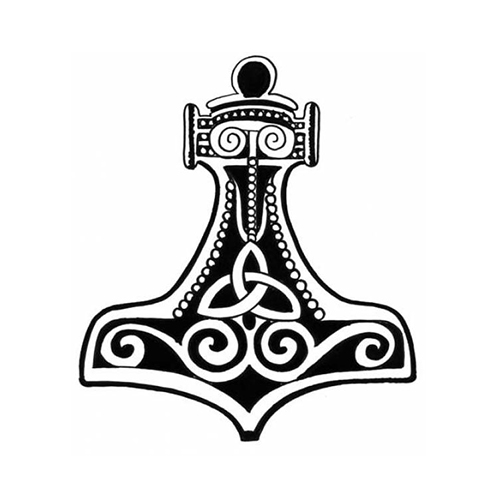 Norse Paganism Religion · Polytheisticexpand_less
Norse Paganism Religion · Polytheisticexpand_lessNorse Paganism refers to the beliefs and traditions of people from Scandinavia: Iceland, Norway, Sweden, and Denmark.
Learn more
Associated myth
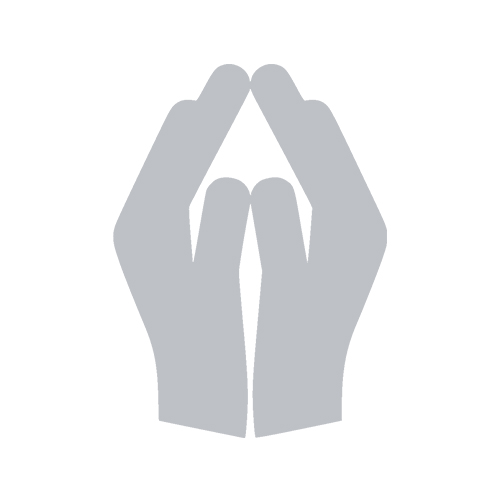 Ask and Embla Creation mythexpand_less
Ask and Embla Creation mythexpand_lessNuthsell
Ymir, an old Norse deity fashioned Ask and Embla from his own flesh. Then, three Norse deities named Hœnir, Lóðurr and Odin give Ask and Embla, the first man and woman, respectively, their human qualities in the form of divine gifts: sight, intelligence, and more.
Read more
Deities depicted
Artifact condition
The artifact named 'GKS 2365 4º' is appraised as being in Just OK condition based on how much reliance is placed on other resources to make it complete and readable.
| Condition | Excellent | Just OK | Poor |
|---|---|---|---|
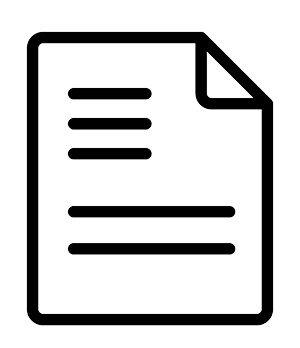 | 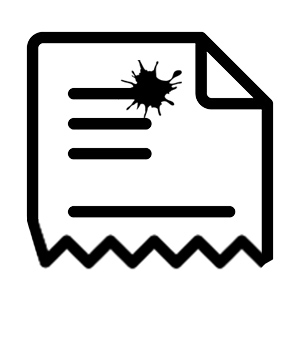 | 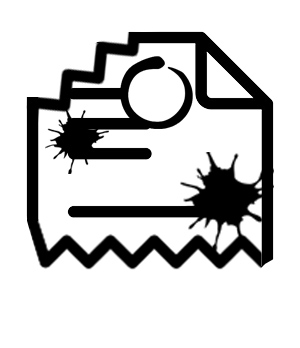 | |
| Completeness | More than 80% | 50 - 80% | Less than 50% |
| Fragmentation | Minor | Moderate | Significant |
| Damage | Minor | Moderate | Significant |
| Legibility | Highly readable | Somewhat readable | Unintelligible |
How did we get this date?
The creation date for the artifact named 'GKS 2365 4º / Codex Regius' is a date range because the exact date is unknown. We derived this date from the source(s) listed below:
Notes (see bottom of page for full bibliography)
- Terry Gunnell, "Eddic Poetry," 82. In A Companion to Old Norse-Icelandic Literature and Culture, 82–100, ed. Rory W. McTurk. Malden, MA: Blackwell Publishing, 2005.Visit"The manuscript in question, written c.1270, contains a body of 29 poetic works in Old Norse-Icelandic, 10 of them dealing with mythological material, and 19 with Scandinavian and Germanic heroes of ancient times."
- Wills et al., "GKS 2365 4to - Codex Regius."Visit"parchment; c1270; not skaldic;"
What's a 'joined' artifact?
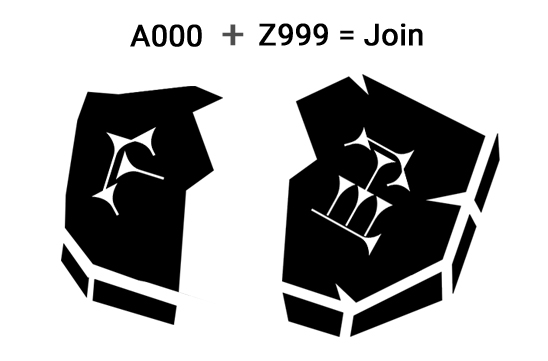
A joined artifact is one that was originally part of the other and was broken or fragmented at some point in time. Joins are common among clay tablets because they may get broken during discovery and transportation. The join is notated with the + sign. For example, if tablets A000 and Z999 are joined, we would express this relationship by grouping them as A000 + Z999 to indicate they are related.
If the fragments are owned, maintained, and cataloged by separate museums then classifying the join relationship is critical for accurate translations.
Cite this page
OMNIKA Foundation Contributors. "GKS 2365 4º / Codex Regius." OMNIKA – World Mythology Index, OMNIKA Foundation, 08 May. 2019, omnika.org/stable/145. Accessed 28 Feb. 2026.
OMNIKA (2019, May 08). GKS 2365 4º / Codex Regius. Retrieved from https://omnika.org/stable/145
OMNIKA Foundation Contributors. "GKS 2365 4º / Codex Regius." Las Vegas, NV: OMNIKA Foundation. Created May 08, 2019. Accessed February 28, 2026. https://omnika.org/stable/145.
